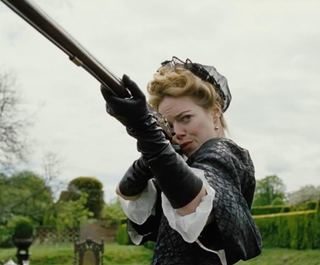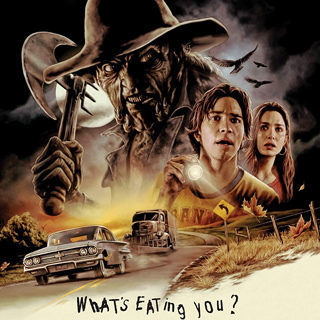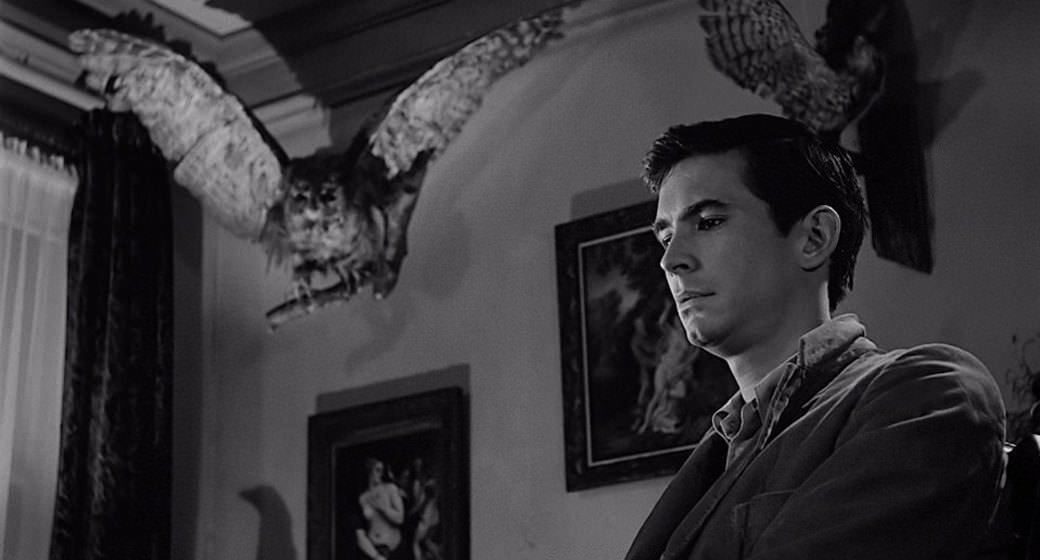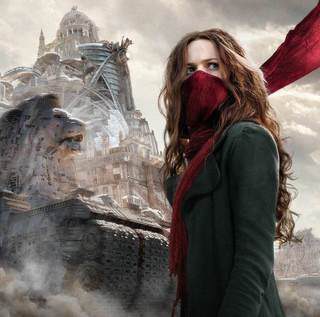10 best and worst films about composers
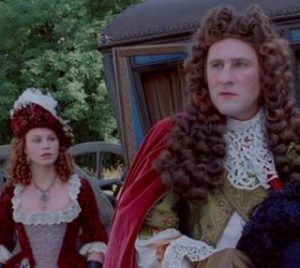 Everything in this world has been covered in movies, and classical music is no exception. The personalities of many great composers aroused the interest of Directors, which is not surprising, as well as the fact that among them — eccentrics and eccentrics, geniuses, tyrants and romantics.
Everything in this world has been covered in movies, and classical music is no exception. The personalities of many great composers aroused the interest of Directors, which is not surprising, as well as the fact that among them — eccentrics and eccentrics, geniuses, tyrants and romantics.
However, to portray the personality of an outstanding composer is always a challenge, especially when it is necessary to show the process of music-making. Just as an incredible amount of training will not make an actor a major League athlete, so the “kapellmeisters” on the big screen sometimes look dubious, arrhythmic, and, even more unforgivably, their hands move in the same direction, while the notes we hear are obviously the opposite. Despite all this, most films about composers are addictive, and some of them can even be called very good. Journalists Classical-music.com we made a selection of the 10 most famous films about composers and rated them on a five-point scale.1. Wolfgang Amadeus Mozart: “Amadeus “(1984) Amadeus
We begin with the most famous biographical drama. Not the first, but perhaps one of the most striking. Composer Antonio Salieri (F. Murray Abraham) is the main villain here. Through a confession to a priest, we learn of his criminal hostility towards Mozart: Salieri admits that he is to blame for the destruction of Mozart’s health and his premature death, and that for all his adoration and devotion to God and the art of music, he will never, ever be compared to Mozart’s “giggling and frivolous” genius (Tom Hals).Yet screenwriter Peter Schaeffer conveys a genuine understanding of Amadeus ‘ genius. Salieri’s mouth reveals the greatness of such works as” the Wind Serenade”: “a Simple beginning, almost comical. The rhythm of the bassoon, the French horn — as a squeaky cart. And then suddenly, high above them, the oboe. One note hung in the air until it was picked up by the clarinet, filling the phrase with such delight… No, I’ve never heard that kind of music. There was so much longing in her, so much inexpressible sadness! I thought I heard the voice of God himself.”Score: 42. Igor Stravinsky: “Coco Chanel and Igor Stravinsky” (2009)Coco Chanel & Igor Stravinsky
Hats off to the man who settled on just such a title for the film about Coco Chanel and Igor Stravinsky. Brilliant! This story is first of all about the meeting of two creative personalities and only then-about the relationship of a man and a woman, when in the 20s a fashion designer invites the composer and his family to live in her Villa in the suburbs of Paris. Jan kunen’s film begins with a recreation of the premiere of the ballet “sacred Spring” and impresses from beginning to end. That’s just Mads Mikkelsen in the role of Stravinsky — a bit of a surprise…Based on real photos and notes of those years, the Russian composer is considered to be small, wiry and extremely witty. But in the film he appears tall, muscular and incredibly gloomy… And yet this is how he charms the on-screen Chanel.Score: 33. Ludwig van Beethoven: “Immortal beloved” (1994) Immortal Beloved
In the court of 1827. Beethoven is dead. Forget about the music, let’s start investigating! Who was she, the mysterious woman with whom the composer was passionately in love? Beethoven’s first biographer and Secretary Anton Schindler goes in search of an” Immortal sweetheart ” and takes on the role of a detective to trace his friend’s most vivid past relationships. Gary Oldman’s performance as both young and old Beethoven-Moody, marred by deafness-is very convincing, but, surprisingly… is not remembered. And while it’s in some ways a gift for the plot, Bernard rose’s film seems unexpectedly insipid, not to mention lacking in historical validity.The storyline that Beethoven bequeaths all his money to the “Immortal beloved” is already the first bell about the probable improbability of the story. Admittedly, there is nothing wrong with a modicum of poetic license, but a little more convincing evidence could turn this film from mediocrity into something memorable.Score: 24. Frederick Delius: “Delius: A Song Of Summer” (1968)Omnibus. Song of Summer
Do the words “Ken Russell biopic” evoke associations with a naked Glenda Jackson swinging on the floor of the car, or Roger Daltrey pressing keys against a backdrop of colorful scenery (hereinafter in the article about Tchaikovsky and Liszt)? If so, “A song of summer” could be a disappointment (or quite the opposite), as Eric Fenby’s five years of staying and caring for the aging, strange Delius at his estate in France, the British Director conveys in a restrained, tasteful, sometimes charming manner, as if Fenby himself were writing the script.In the role of the blind, paralyzed and yet unsympathetic Delius, Max Adrian is simply magnificent, while Christopher gable as the naive Fenby is lost by virtue of his unforgivable accent. Then David Collins (Percy Granger) appears with his invariably high timbre and assures Fenby that after living with Delius he will never want to hear the music of the dying composer again. “Song of summer,” on the other hand, should make you want to hear more.Score: 55. Pyotr Ilyich Tchaikovsky: “music Lovers” (1971)The Music Lovers
And again the picture of Ken Russell (its alternative name – “Musical lovers”). Tchaikovsky, a red-haired Richard Chamberlain with a tousled beard, and his fictional lover count Anton Shilovsky fool around on an ice slide, drink and move in before falling off his feet at Tchaikovsky’s house. Then-the premiere of his piano Concerto No. 1 performed by Chamberlain under the gaze of Sasha in love (Alexandra Tchaikovsky, consumed by far from sisterly passion), his future mistress Madame von Meck and Antonina (Glenda Jackson), with whom he expects an unhappy marriage. Nikolai Rubinstein, Director of the Moscow Conservatory (Max Adrian), publicly and in a rather ridiculous manner expresses his admiration for Tchaikovsky’s work.Further only worse. Glenda Jackson overplays so much that you no longer notice Tchaikovsky’s unintentional cruelty towards Antonina. The notorious scene in the train car, when abandoned by Tchaikovsky Antonina tries to seduce his rival Rimsky-Korsakov… under covering “Kismet” Borodin. Oh my God!
Score: 26. Franz Liszt: “Listomania” (1975)Lisztomania
And if you’re wondering how Ken Russell’s career reached its climax, look at the picture “Listomania”. Following the success of the rock Opera Tommy (also 1975), Russell takes Roger Daltrey of the Who as Franz Liszt in an attempt to compare the effect produced by Liszt’s playing on 19th-century ladies with the influence of rock idols on modern youth.Russell’s sheet embodies the qualities of a rock star of the 70s; complete the image of costumed groupies and backup dancing. The plot is boldly based on the fictional story of the writer Marie d’agou about her affair with the composer.
The project sensationally exceeded the expectations of even the Director: Nazis, Catholics, “flashy” costumes and obscene props. In addition to the above, specific humor: take, for example, the crazy scene with eating a banana and a battle with swords, where Liszt duels with count d’agou, or the scene with Richard Wagner (Paul Nicholas), who returns to life in the form of Hitler-like monster Frankenstein with the help of the Scandinavian God performed by Rick Wakeman.Score: 27. Frederick Chopin: Impromptu (1991)Impromptu
Long-haired Hugh Grant-the protagonist of a romantic Comedy. Sound familiar? Yes, even when he portrays one of the great composers of the 19th century, it is difficult not to notice the similarities with the paintings of “Notting hill” or ” Four weddings and one funeral.” However, the resemblance is superficial enough: Chopin’s refined and restrained genius is not a classic Hollywood hero.It was his musical talent that captivated the famous writer, bearing the pseudonym George sand (Judy Davis), famous for numerous lovers and the manner of dressing like a man. And she is determined to seduce Chopin at a reception at a country house in France.Just look at the performance of Emma Thompson as the Duchess d’antan, who certainly wants to become part of the creative Bohemia! Yes, the picture can not boast of historical authenticity, but it has enough love confessions, betrayals, duels, games of croquet and Amateur theatrical productions to make it really fascinating.Score: 38. Giacomo Puccini: “Puccini” (1984) Puccini
Dawn. Puccini (Robert Stevens) is in his boat on lake Torre del Lago hunting ducks when a voice-over grumbles about how critics have defamed his “Bohemia” and “Madame butterfly.” The relationship with what follows is not immediately obvious-when we observe in detail the emotional state of Puccini’s wife Elvira. Being aware of her husband’s love Affairs, she is convinced that he is having an affair with a maid and slanders her, which leads to sad consequences. This scene is intertwined with fragments of Tony Palmer’s documentary, directed by Puccini’s final Opera Turandot.
The film leads to the understanding that the Opera was a direct result of this tragic episode in the life of the composer, but only Palmer felt it necessary to focus on this, inserting Puccini’s dialogues with the villagers in the key scene of the funeral. And then-Aha, so that’s it-we finally catch the main idea of the presence of Puccini’s VoiceOver remarks about criticism! It is as if Palmer has put on display the unflattering reviews of his own work.
Score: 49. Maren Mare: “all the mornings of the world” (1991) Tous les matins du monde
